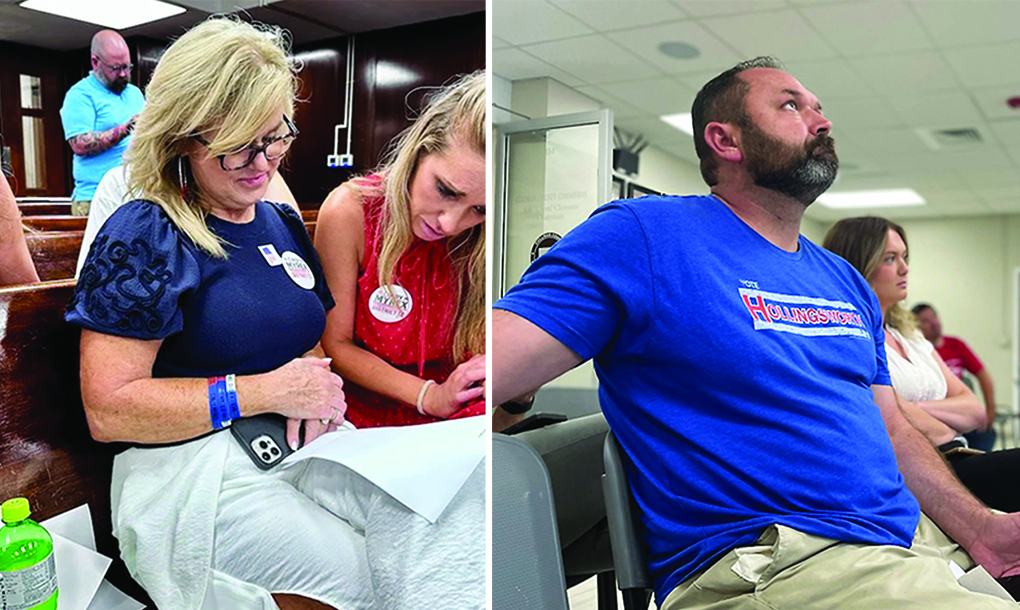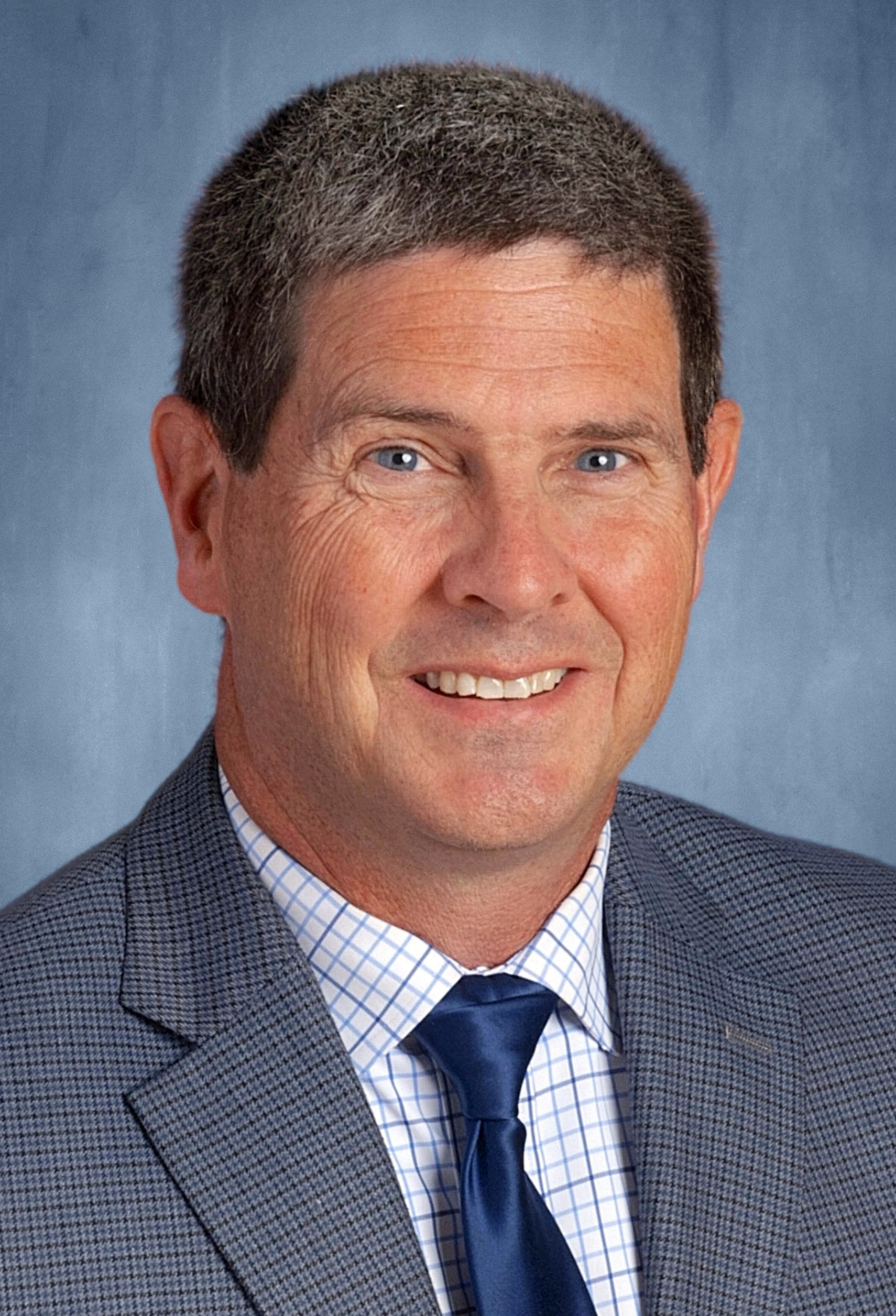Funding highlight of 2005
Published 10:12 pm Tuesday, January 3, 2006
The theme was lowering costs and saving taxpayer money when Wiley Kitchens, County Commission Chairman, gave his top-five commission highlights for 2005.
Not all were positive though.
Kitchens named restructuring the county pay scale, parking county vehicles and taking over the park board as changes that saved money for the county. He also pointed to the opening of the new jail and what he called a frivolous law suit as actions that had lost cash for taxpayers.
“What we’ve been trying to do this year [2005] is make people that spend county revenue more accountable to the commission and the public,” said Kitchens.
“When the public sees where their money is being spent, which is their right, we feel we will be doing good for the people by saving as much as we can.”
Payroll restructure
According to Kitchens, the commission’s restructuring of employee pay and promotions for the county was one of the most successful money-saving techniques in 2005.
“It’s really more fair all the way around,” said Kitchens. “It helps us keep runaway raises in check and makes sure that all county employees get the same raise each year, across the board.”
The commission initiated the new scale in May 2005. It places nearly all hiring, promotions and pay raises under the direct control of the commission.
Kitchens said the old, merit-based scale could be used to bypass the commission on some decisions, and it did not give all county employees a cost of living raise each year.
The new system allows for a 5-percent pay increase for what Kitchens called “true promotions.” It also requires the employees receive they pay posted when they take a new job.
“It was quite confusing at first,” said Kitchens. “But we feel that it has stabilized compared to what it was.”
Parking county vehicles
Another notable change in 2005, according to Kitchens, involved banning of personal use for county vehicles.
While formerly county employees were allowed to drive county-owned cars and trucks home at the end of the day, Kitchens said the wasted gas and mileage was adding up.
“Also, it wasn’t fair to provide some employees personal vehicles and not others,” said Kitchens. “We were getting complaints over that.”
The new ruling requires employees to drive their own vehicles to and from work, parking county owned ones at shops and offices.
“I’d say the big savings there was in gas,” said Kitchens.
The ban does not include county employees that are on call 24 hours a day, 7 days a week. Kitchens said that rightfully includes the commissioner’s vehicles.
Park Board
In a highly controversial move, the commission voted 2-1 to take management rights away from the Cullman County Park Board in 2005.
Despite the emotional debate that followed, Kitchens listed the take over as a key money saver for the county.
“Communication between the commission and the Park Board was not too good,” said Kitchens. “They really weren’t giving us a whole lot of cooperation with the improvements we wanted to make.”
“We felt that since we were funding it, we had the right to take it over,” he said.
After the take over, Kitchens said they improved decreased costs at the parks by using county road workers to make upgrades and maintain the parks.
Current commission improvements made to the parks include expanded parking, walking trails, sidewalks and future mountain bike trails.
Commissioner Doug Williams also indicated at a previous meeting that they may be building a new park somewhere in Cullman County.
According to Kitchens, the commission also cut the parks budget by more than $18,000 in 2005, increasing revenue between 20 and 30 percent.
He said the commission may set up a new, commission-controlled park board sometime in 2006. Its purpose would be to advise the commission on how to best manage the parks
Kitchens said he did not know what plans were for the old Park Board.
“We can’t change the Park Board. What they do is up to them. We just took the management of the parks back,” he said.
Lawsuit
Kitchens highlighted two events that he said were very costly for the county in 2005. The first was the lawsuit between the commission and County Revenue Commissioner Kay Smith.
According to the chairman, the county lost at least $19,000 in legal fees when Smith sued the commission in an effort to regain hiring rights for her department in 2005.
That amount will likely go up when the commission gets the bill for its own legal fees, which Kitchens estimated would be between $6,000 and $8,000.
Kitchens called the lawsuit a frivolous waste of taxpayer money on the part of Smith, claiming that she always had the right to replace employees that she had lost in her department.
The suit was settled before the court ruled. Smith was allowed to hire the employees she wanted.
Jail
The new Cullman County Detention Center was heralded by local officials and authorities when it opened in 2005, but Kitchens said the cost of staffing it has been much higher than anticipated.
“It was designed to operate with a staff of 28 people,” said Kitchens. “Right now I think they have 40 jailers working down there.”
While the old jail kept an average staff of 14 jailers, Kitchens said new jail increased operating costs considerably for the county.
He said things would only get worse when the Sheriff’s Office moved to the new location, requiring the hiring of additional security at the courthouse.
“This is no reflection on the Sheriff (Tyler Roden) because I think there are a lot of things that he didn’t expect either,” said Kitchens.
Currently some of the operating costs at the jail are offset by the city of Cullman, which rents out 10 beds at the facility for their own prisoners.
Kitchens said that the commission is working on a deal with the federal government that will bring federal prisoners and federal dollars to the new jail.
While it is not clear exactly when that outcome will be known, Kitchens said five of the 40 jailers were hired specifically for guarding federal inmates. If the deal does not go through, they will be laid off.
“If we can make government more accountable, we can do great deal to increase efficiency,” said Kitchens of the 2006 year. “We’ve got a lot of work to do. It’s not going to be easy, but we’re determined.”





